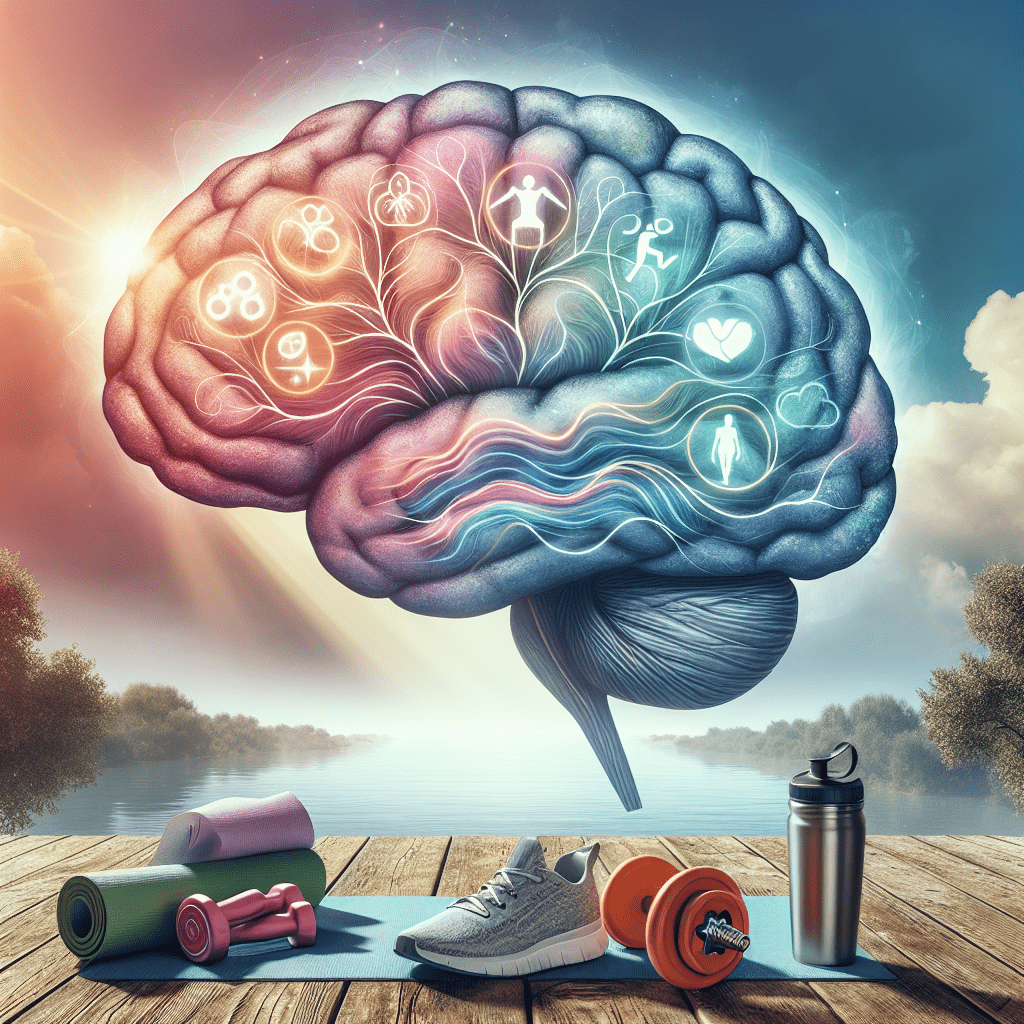Mental health is a crucial component of overall well-being, and it is often linked to physical fitness. The connection between mental health and fitness is strong, with regular exercise playing a vital role in maintaining good mental health. In this article, we will explore the relationship between fitness and well-being, and discuss the impact that exercise can have on mental wellness.
The Benefits of Exercise for Mental Health
Regular exercise has been shown to have numerous benefits for mental health. Physical activity can help reduce symptoms of anxiety and depression, improve mood, and enhance cognitive function. Exercise releases endorphins, which are chemicals in the brain that act as natural painkillers and mood elevators. This can lead to a sense of well-being and improved mental clarity.
Additionally, exercise can help reduce stress levels and improve sleep quality. A consistent exercise routine can also increase self-esteem and confidence, as individuals meet their fitness goals and feel better about themselves physically and mentally.
The Connection Between Physical and Mental Health
Physical and mental health are closely connected, and maintaining one can have positive effects on the other. Regular exercise can improve cardiovascular health, strengthen muscles, and boost immunity, which can all contribute to better mental health. Physical activity can also help regulate hormones in the brain, such as serotonin and dopamine, which play a role in mood regulation and overall mental well-being.
Conversely, poor physical health can have negative impacts on mental health. A sedentary lifestyle, poor nutrition, and lack of exercise can increase the risk of developing mental health disorders, such as depression and anxiety. By prioritizing physical fitness, individuals can improve both their physical and mental well-being.
How to Incorporate Exercise into Your Routine
If you are looking to improve your mental health through fitness, there are many ways to incorporate exercise into your daily routine. You can start by finding an activity that you enjoy, whether it’s walking, running, cycling, dancing, or participating in a group fitness class. Consistency is key, so aim to exercise at least three to five times per week for optimal mental health benefits.
You can also set specific fitness goals to keep yourself motivated. Whether it’s running a 5K, completing a yoga challenge, or increasing your strength, having goals can help you stay on track and see improvements in your physical and mental well-being. Remember to listen to your body and take rest days when needed to prevent burnout.
Conclusion
The connection between mental health and fitness is clear, with regular exercise playing a crucial role in maintaining good mental well-being. By incorporating physical activity into your routine and prioritizing your fitness, you can improve your mood, reduce stress, and boost your overall mental wellness. Remember to listen to your body, set achievable goals, and make exercise a priority in your life for optimal mental health benefits.
FAQs
Q: How often should I exercise to see mental health benefits?
A: Aim to exercise at least three to five times per week for optimal mental health benefits. Consistency is key for seeing improvements in mood, stress levels, and overall well-being.
Q: What types of exercise are best for mental health?
A: Any form of physical activity that you enjoy can have mental health benefits. Whether it’s cardio, strength training, yoga, or dance, find an activity that makes you feel good and stick with it to see improvements in your mental well-being.
Q: How can I stay motivated to exercise regularly?
A: Setting specific fitness goals, finding a workout buddy, and varying your routine can help you stay motivated to exercise regularly. Remember to listen to your body and prioritize your mental well-being in your fitness journey.
TIP: Make exercise a priority in your daily routine, and remember that any form of physical activity can have mental health benefits. Find an activity that you enjoy and stick with it to see improvements in your mood, stress levels, and overall well-being.
#Mental #Health #Matters #Connection #Fitness #WellBeing

